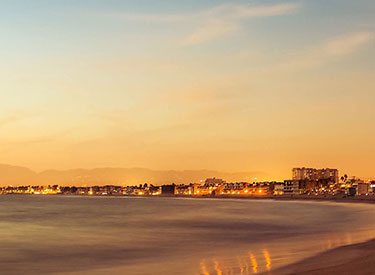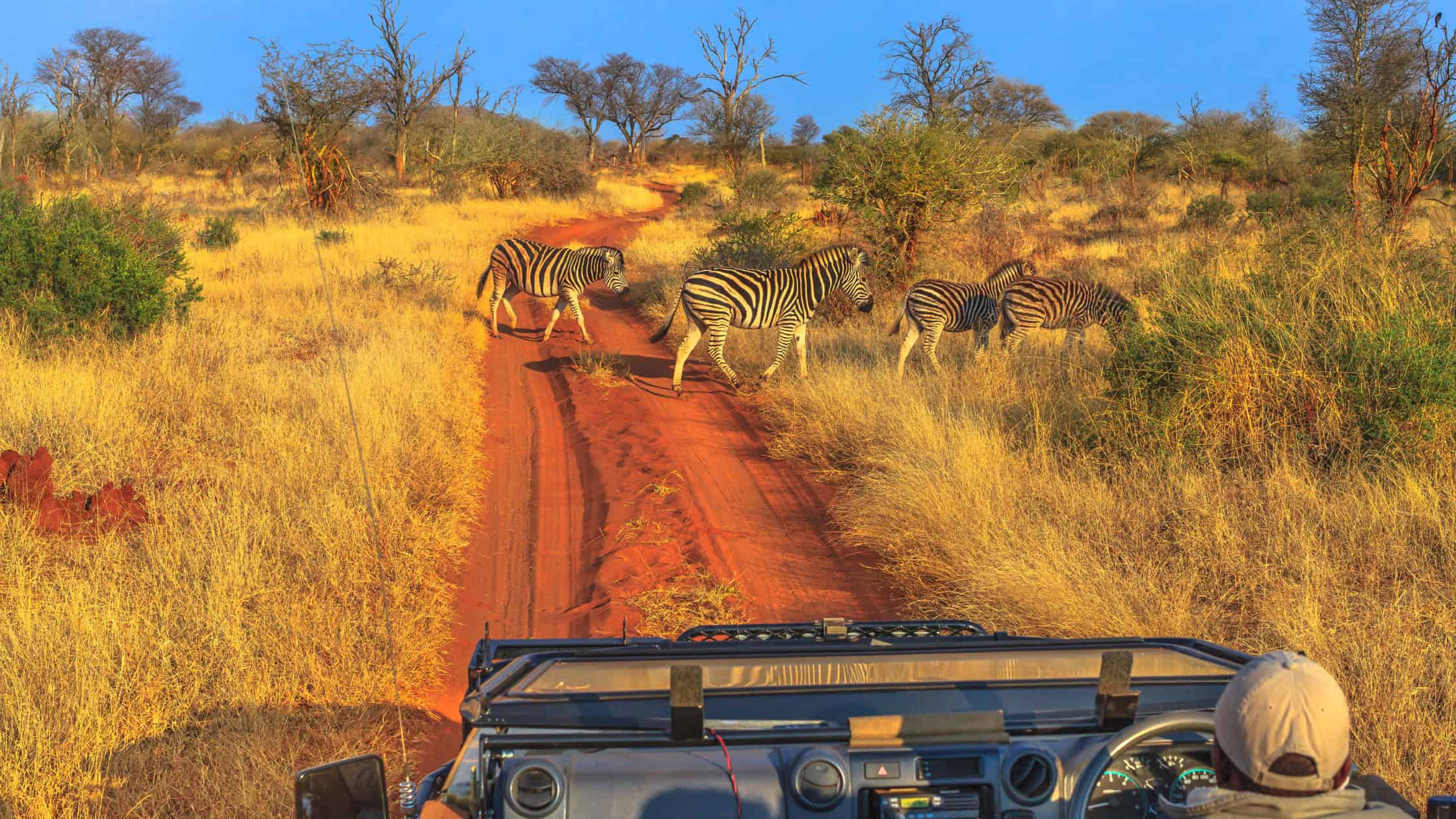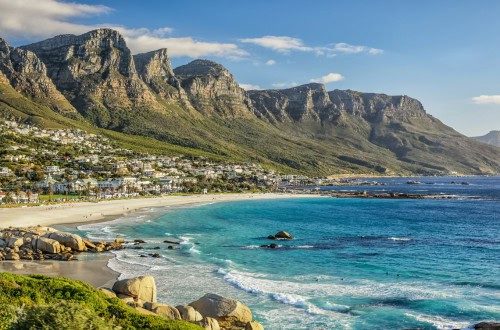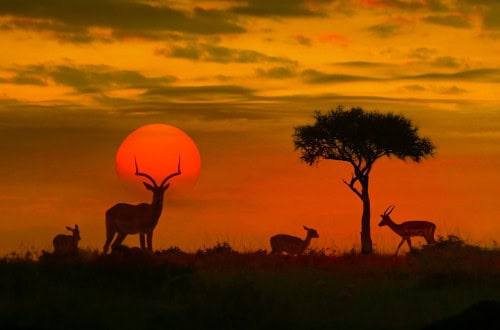


With its diverse landscapes, rich culture and incredible wildlife, South Africa is one of the world’s most unique and memorable holiday destinations. We’ve covered everything you need to know – from helpful travel tips to the best things to see and do – to help you make the most of your South African adventure.
The South African people are renowned for their warmth and hospitality, and they love sharing their beautiful country with overseas visitors. However, as with any destination, it’s important to take certain precautions to ensure your safety. In urban areas you should be mindful of your surroundings, keep your valuables secure, stick to popular tourist areas and only use reputable forms of transport such as licensed taxis and ride-share companies.
If you’re visiting national parks or going on safari, always follow the guidelines provided by guides and park staff, and never approach wild animals on your own. It’s a good idea to check Smartraveller site for the latest travel advice and warnings and to register your travel plans.
If you are travelling on an Australian passport, you can currently stay for up to 90 days without a visa if you are visiting South Africa for tourism purposes. However, as entry and exit conditions are subject to change, we recommend checking with your personal travel manager or visiting the Smart Traveller website for the latest information.
The best time of year for your South African holiday will vary depending on how you intend to spend your time. During the summer months of November to March, you can expect long sunny days and settled weather – perfect for hiking up Table Mountain, exploring the Drakensburg Mountains or lazing on golden beaches.
The Winelands region is particularly scenic during the autumn months of March to May, when the endless rows of vines turn to gold. The winter months (May to September) are a fantastic time of year to experience game viewing – the weather is still warm and dry, and the animals are easier to spot as they congregate at water sources.
1. Food and wine
It’s just an hour’s drive from Cape Town to the famous Winelands region and the picturesque town of Stellenbosch, which is famous for its Cape Dutch architecture and tree-lined streets. Many of the region’s world-class wine estates offer wine tastings of award-winning varietals like Chenin Blanc, Sauvignon Blanc, Shiraz and Pinotage, ideally paired with delicious farm-to-table dining.
The South African tradition of Braai is more than just a barbecue – it’s also a social and cultural tradition. The mouthwatering aroma of boerewors and grilled meats sizzling over a charcoal or wood fire is best experienced while on safari, accompanied by the spectacle of an African sunset over the savanna.
2. Rich history and culture

From the lively shopping and dining precinct of the V&A Waterfront to the breathtaking views of iconic Table Mountain, Cape Town’s natural wonders and vibrant atmosphere makes it one of our favourite destinations to visit in South Africa. The city is a melting pot of cultures, and its diversity is reflected in its cuisine, festivals, and neighborhoods like Bo-Kaap, which is known for its colourful houses and Cape Malay heritage.
Take a tour of Robben Island, the site of the notorious prison where Nelson Mandela was jailed for eighteen years. Many of the guides are former political prisoners who were incarcerated there during the 20th century. A visit to this UNESCO World Heritage site is a poignant experience that shines a spotlight on the resilience, courage and sacrifice of those who fought for South Africa’s future.
3. Amazing animals interactions

One of the main reasons to visit South Africa is to experience the beauty and grandeur of its wildlife and landscapes. Kruger National Park is one of the largest game reserves in southern Africa, renowned for its Big Five (lion, leopard, elephant, buffalo and rhino). You can choose from a variety of safari experiences, ranging from fully guided, luxury lodge stays to budget-friendly, self-drive options.
For animal encounters of a different kind, the coastline of the Western Cape Province offers incredible whale watching between June and November. The seaside town of Hermanus is renowned as South Africa’s whale-watching capital: one of the few places in the world where you can watch migrating Southern Right whales from dry land.
4. Stunning beaches and coastal scenery
The stretch of coastline from Mossel Bay to Storm’s River is known as the Garden Route: a stunning region of coastal cliffs interspersed with sandy beaches and picturesque seaside towns. It’s spectacular at any time of year, but renting a car and embarking on a road trip during the warmer summer months (November to March) is a great option if you want to enjoy swimming, surfing and snorkeling in the warm waters of the Indian Ocean.
The stunning stretch of coastline known as the KwaZulu-Natal South Coast is another memorable road trip destination, offering endless expanses of pristine beaches such as Ramsgate, Marina Beach and Hibberdene. The nearby Oribi Gorge, with its breathtaking landscape of deep canyons, towering cliffs and lush forest, is ideal for hiking, bird watching and wildlife spotting, as well as extreme activities like zip-lining, abseiling and one of the world’s highest gorge swings.
The city of Gqeberha, formerly known as Port Elizabeth, is located roughly halfway between Cape Town and Durban in the Eastern Cape Province. As well as its pristine Blue Flag beaches and its proximity to a number of game parks, one of the city’s main drawcards is the Route 67 walking trail, which celebrates 67 years of Nelson Mandela’s life dedicated to the struggle for freedom with a showcase of beautiful public art and historical landmarks.
Qantas operates direct flights between Sydney and Johannesburg, with connecting services to other major South African gateways such as Port Elizabeth, Durban and Cape Town. You can also fly via international hubs like Singapore, Dubai and Doha.
A rental car is a great option if you’re planning to explore South Africa’s coastal routes at your own pace, while guided tours are ideal if you prefer to let someone else take care of details like travel, activities and accommodation. You can add a splash of extra luxury to your South African holiday by travelling on the iconic Rovos Rail or The Blue Train. This is a truly memorable way to cover longer distances while enjoying the opulent interiors, gourmet dining and incredible views for which these iconic rail journeys are renowned.
If you’re visiting Kruger National Park, the drive from Johannesburg takes four to six hours (depending on your entry point), or you can fly to Nelspruit, which is located just an hour from the park’s southern entrance. Many of the luxury safari lodges within the park offer fly-in packages from Johannesburg or Cape Town, allowing you to make the most of your time on safari.
Local buses and minibus taxis are the cheapest form of public transport in South Africa, but we generally don’t recommend using them due to safety concerns and unpredictable schedules.
South African currency: the South African Rand, abbreviated as ZAR. AU$1 is currently worth approximately R12–13. Cash is widely used, and it’s a good idea to carry some cash for small purchases and tips, as well as taking credit cards or pre-loaded travel debit card for larger transactions.
Time zone: South Africa has a single time zone, known as South Africa Standard Time (SAST), and there is no period of daylight saving. South Africa is eight hours behind Australian Eastern Standard Time (AEST) and six hours behind Australian Western Standard Time (WST).
Phone and Internet: most Australian providers provide international roaming in South Africa – check with your individual provider for details and costs. Alternatively, there are apps that let you buy an eSIM data plan for the duration of your holiday – check out our handy guide to the best travel apps for more information. Most city hotels (and some camps and lodges) provide access to WiFi, but if you’re planning to spend time on safari, it’s best to assume you’ll be offline and just enjoy the freedom of time away from digital devices.
With its immense natural beauty and rich cultural heritage, South Africa is often described as somewhere that will get under your skin, touching your heart and capturing your soul. To start planning your holiday in this truly unique, bucket-list destination, talk to your personal travel manager.